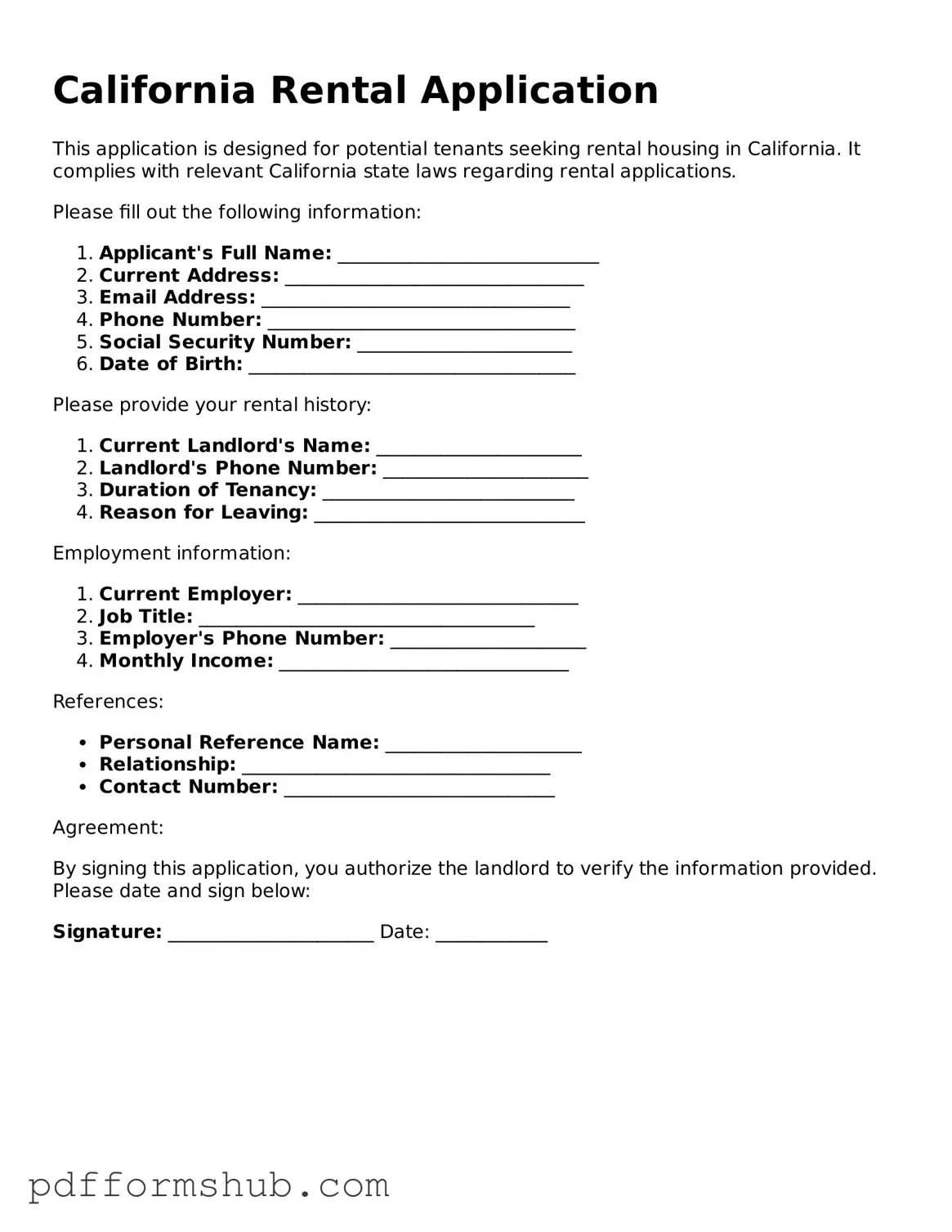Attorney-Verified Rental Application Form for California State
The California Rental Application form is a document that potential tenants fill out to apply for a rental property. This form collects important information about the applicant, including their financial background and rental history. Understanding how to complete this form can streamline the rental process, so be sure to fill it out by clicking the button below.
Customize Form

Attorney-Verified Rental Application Form for California State
Customize Form

Customize Form
or
Free PDF Form
Short deadline? Complete this form now
Complete Rental Application online without printing hassles.